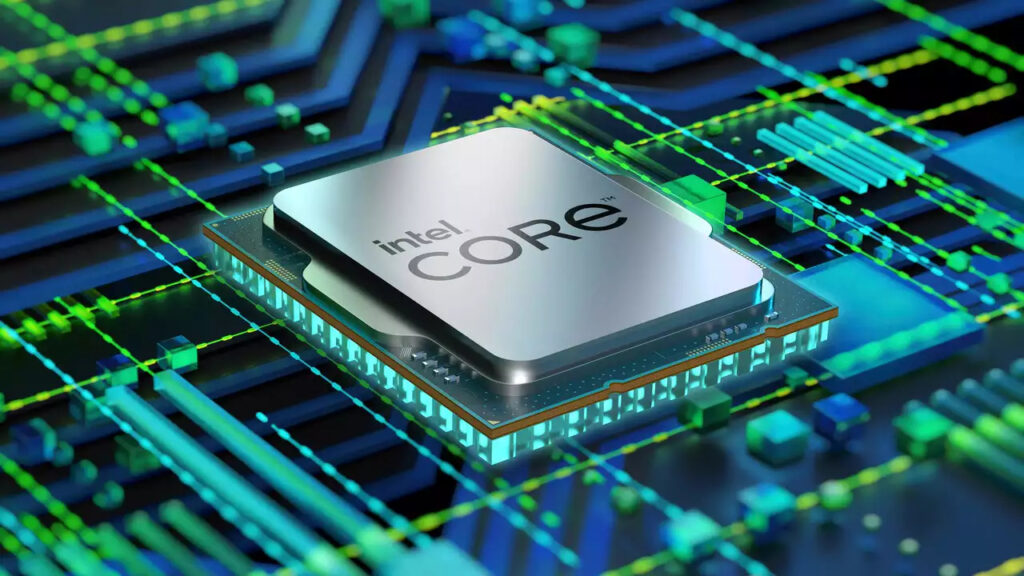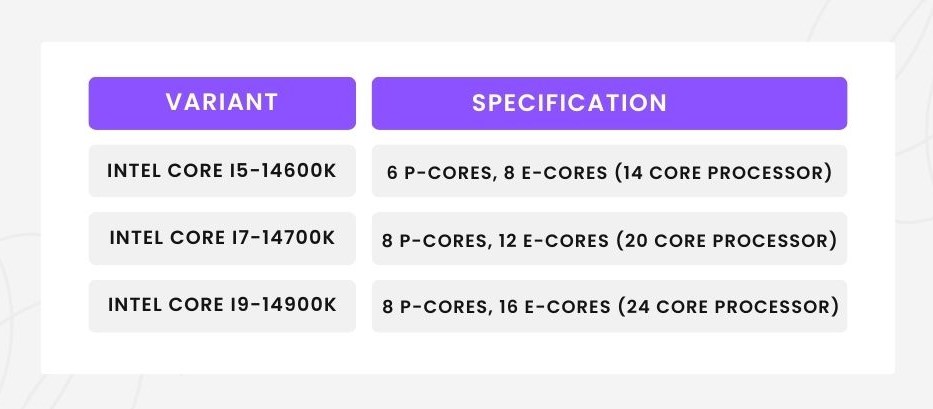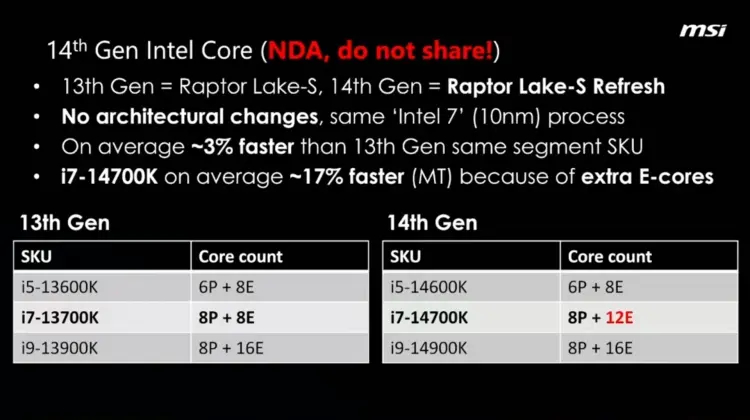
A recent leak has shed light on the details of Intel’s highly anticipated 14th Gen Desktop CPUs, clearing up some of the confusion surrounding them. The leaked information provides insights into the architecture, expected performance gains, and specifications of the upcoming i5, i7, and i9 variants. Here’s what we now know about these CPUs.
New Information Emerges Regarding Intel’s 14th Gen Desktop CPUs
An internal document leak originating from MSI, an official partner of Intel’s motherboard division, has provided us with an in-depth view of Intel’s upcoming 14th Gen desktop CPU lineup. The leaked document, which was unintentionally shared and later made private, indicates that the 14th Gen CPUs will offer an average performance improvement of around 3%. Furthermore, the leak suggests that the i7-14700K variant could deliver a significant 17% performance boost in multi-threaded tasks, primarily due to its higher core count.
Interestingly, the leak also confirms that Intel’s 14th-Gen desktop CPUs will not feature any architectural changes. These CPUs will continue to utilize the same 10nm ‘Intel 7’ manufacturing process. While this might be a bit underwhelming, it raises the possibility that Intel is reserving major enhancements for its future 15th-Gen processors, which could introduce an entirely new manufacturing process.
The leak also provides insights into the specifications of the various CPU variants. Given the source of the leak, the information can be considered fairly reliable. Let’s delve into some significant specifications:

- The total core counts for i5 and i9 processors will remain unchanged.
- The i7-14700K, however, will see a significant increase in core count. While its predecessor, the i7-13700K, featured 16 cores (8 P-cores & 8 E-Cores), the new i7-14700K will boast a total of 20 cores by adding four additional E-Cores. This core count bump should lead to a more noticeable performance improvement compared to other new CPUs.

The leak also reveals that Intel’s upcoming 14th-gen desktop processors will carry the name ‘Raptor Lake-S Refresh‘. For those eagerly anticipating Intel’s 14th Gen Desktop CPUs, this new information might be influencing your decision. Are these improved performance figures making you more inclined to consider these upcoming CPUs? Feel free to express your opinions in the comments area down below.




